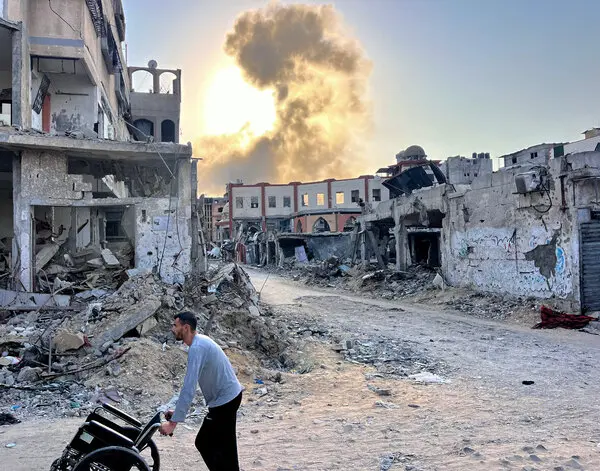September 25, 2025
A senior US envoy expressed optimism about achieving a breakthrough in Gaza peace talks, signaling renewed international efforts to end the humanitarian crisis.

A senior United States envoy has voiced confidence that “some sort of breakthrough” could soon be achieved in the long-standing Gaza crisis, signaling renewed momentum in international diplomatic efforts to bring relief to the besieged enclave. The comments come amid mounting humanitarian concerns, escalating violence, and growing international pressure to address the worsening situation in Palestine.
Speaking to reporters after a series of high-level meetings with Middle Eastern and European leaders, the envoy emphasized that the United States is working closely with allies, including key Gulf states, Egypt, and the European Union, to create a viable pathway toward easing tensions and expanding humanitarian access. The envoy highlighted that while significant obstacles remain, there is cautious optimism that sustained diplomacy may lead to progress within days rather than weeks.
The humanitarian situation in Gaza has deteriorated rapidly in recent months, with food shortages, medical crises, and critical infrastructure damage leaving civilians in dire conditions. International relief organizations continue to warn that without urgent intervention, the enclave faces a full-blown humanitarian catastrophe. Against this backdrop, the US envoy’s optimism offers a glimmer of hope, though skepticism remains about whether talks will translate into concrete results.
Diplomatic sources suggest that negotiations are focusing on two key tracks: immediate humanitarian relief and longer-term political arrangements. The first involves securing humanitarian corridors, ensuring the uninterrupted flow of food, medical aid, and essential supplies into Gaza. The second concerns a broader framework for de-escalation, including steps to prevent further outbreaks of violence and a potential roadmap for political dialogue.
The envoy’s remarks align with growing calls from the international community for urgent action. In recent days, ministers from the Gulf Cooperation Council (GCC) and the United Kingdom issued a joint condemnation of the humanitarian catastrophe in Gaza, underscoring the need for a coordinated global response. The European Union has also pledged to increase its aid commitments and apply diplomatic pressure on all parties involved.
Observers note that the US position reflects both humanitarian concerns and strategic calculations. Stability in Gaza is seen as essential for broader regional security, and the United States is eager to demonstrate leadership in advancing peace efforts. However, domestic political considerations also loom large, as policymakers in Washington weigh how to balance strong support for Israel with growing calls for Palestinian rights.
Critics caution that optimism alone is not enough. They point to past peace initiatives that collapsed under the weight of entrenched divisions, shifting alliances, and mutual distrust. Human rights groups warn that unless international actors enforce accountability and ensure that agreements are implemented, civilians in Gaza will continue to bear the brunt of political stalemate.
For now, the envoy’s assurance of “some sort of breakthrough” reflects a rare note of optimism in a crisis defined by cycles of violence and humanitarian suffering. Whether this optimism will be realized remains to be seen, but diplomatic momentum appears to be building.
As the international community watches closely, the coming days will be critical in determining whether the latest round of talks produces real progress or becomes yet another missed opportunity in the decades-long struggle for peace in Gaza.